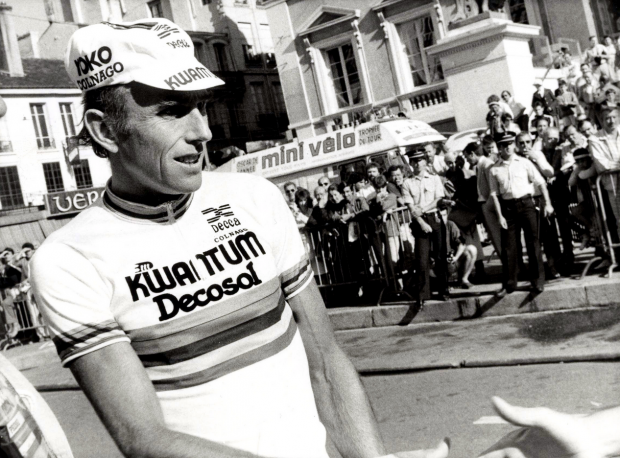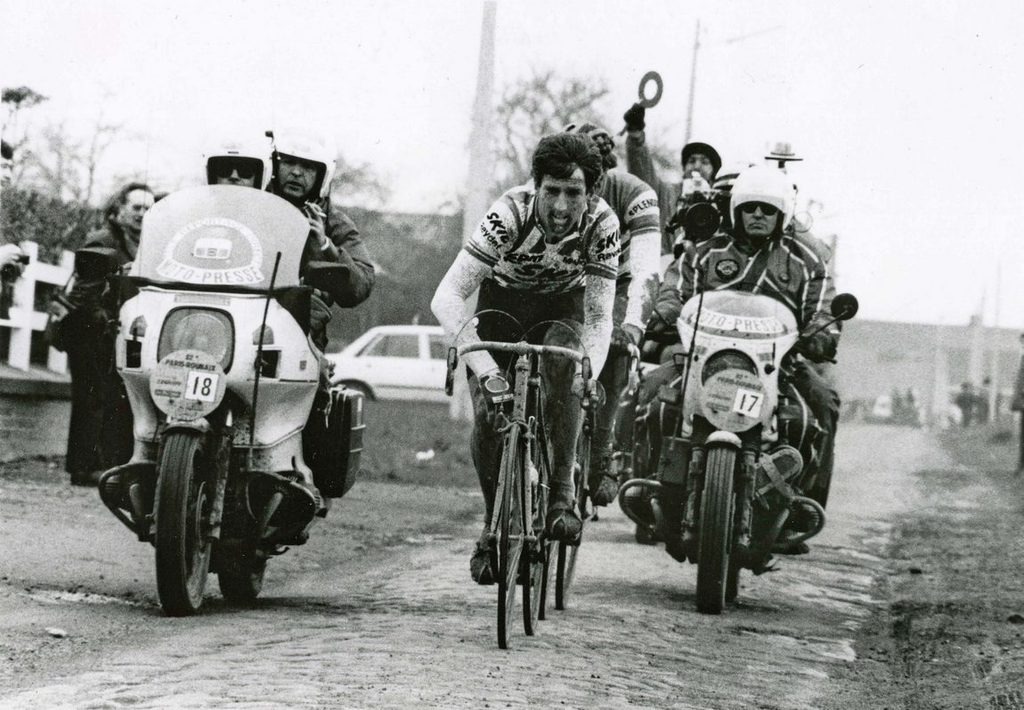The Eternal Seconds: Heroes or Villians?

Joop Zoetemelk was a hard man, a tough nut to crack. He specialized in getting second place, a talent he developed under the doctrine of Eddy Merckx and mastered via the harsh tutelage of Bernard Hinault. It’s very seductive to lean back in our armchairs and draw the conclusion that our sport’s Eternal Seconds, as they’re called, are the weaker men than their rivals. The sport is filled with this familiar story; a rider comes up and is hailed as perhaps the next great rider, only to have synchronized their career with a more dominant rider.
Poulidor, who started with Anquetil and finished with Merckx. Zoetemelk, who started with Merckx and finished with Hinault. Then EPO entered the peloton and the balances were set off for a bit as riders who shouldn’t have been at the top were popping in for table scraps before Ullrich took the helm by getting on the podium in the Tour more often than any champion before him had won the Tour. Like Chimera and Bellerophon, every great hero needs a villain and it seems these riders are always there to stand up and fight year after year, against all odds.
In keeping with the Chimera and Bellerophon metaphor, I’m not so sure it is the victor who is the hero and the loser the villain. In my ski racing days, I was at the top of my game – I even had one season where I was undefeated throughout. That season was, without hesitation, my least rewarding season; winning became a question of margin – I even won one time trial where I started last and caught up to each of my teammates in serial and paced them to the next teammate such that we all finished in a big line of eight skiers.
The most rewarding season was the year where I struggled to fight back after losing motivation (due to the previous season’s excess) and still managed to win the key events. But the real fun wasn’t so much in the winning or losing, but in the bond it built between me and my principal rival; we both fought to the point of blacking out and neither of us ever – even for a minute – relented.
Extrapolating from that small-world experience to what it takes to become a Pro Cyclist capable of wining the Tour de France, it gives some insight into the mentality of the athletes who play out these battles that figure so prominently in our interpretation of our sport. To that end, I wonder if the champions don’t have the psychologically easier side of the coin. After all, they suffer almost the same amount, endure almost the same pressures and endure almost the same amount of discipline and sacrifice in pursuit of their goals. But one has the reward of victory and one the indignity of loss.
To come back year after year as victor seems almost like a picnic in comparison to the brutality of coming back year after year only to lose once again – then to resolve to return undeterred. In this sense, the loser who refused to quit endurs the suffering and sacrifice without the glory that comes with winning. Without them and their unrelenting optimism, the story would be less bright, less colorful. Which is the hero in our story?

